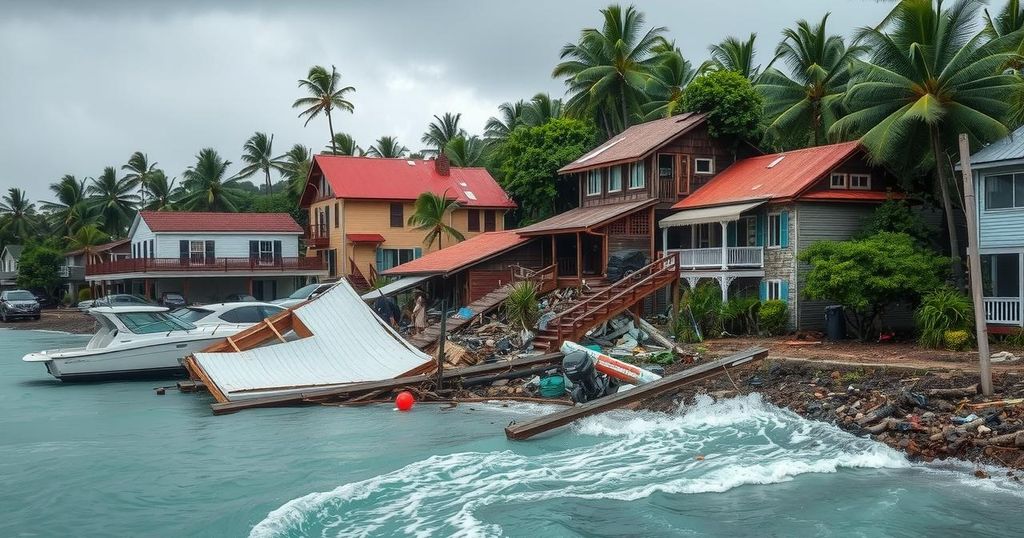Cyclone Chido recently devastated Mayotte, resulting in destruction compared to an atomic bomb. With winds over 220 km/h, the storm caused unfathomable damage, leading to fears of numerous casualties. Reports indicate that two-thirds of the island remains inaccessible, complicating rescue efforts in a region already grappling with significant socio-economic challenges.
On the recent weekend, Cyclone Chido, a catastrophic Category 4 storm, struck the French territory of Mayotte, wreaking havoc across the islands. With winds exceeding 220 kilometers per hour (136 miles per hour), the cyclone has been described by locals as akin to an atomic bomb, resulting in widespread destruction. Bruno Garcia, a hotel owner, lamented, “There is nothing left. It’s as if an atomic bomb fell on Mayotte.” The storm caused disastrous impacts on the infrastructure, flattening neighborhoods, destroying hospitals, and obstructing roads, complicating access for rescuers and aid workers.
The full extent of the cyclone’s toll remains unclear; authorities estimate that the death toll could reach into the hundreds or even thousands, with Mayotte Prefect François-Xavier Bieuville predicting a substantial loss of life. Reports indicate that about two-thirds of the island is currently inaccessible, further impeding efforts to locate survivors. Estelle Youssouffa, a local member of parliament, emphasized the devastation, stating, “Everything has been razed.”
Despite the disaster, the situation for Mayotte’s residents is compounded by ongoing socio-economic challenges, as Mayotte is recognized as the poorest locale in the European Union, grappling with poverty and systemic issues. The cyclone interrupted communications, leaving families desperate for news of missing loved ones. Chad Youyou, a local resident, poignantly encapsulated the despair of his community, stating, “Mayotte is destroyed … we are destroyed.”
Rescue operations are underway, yet the damage to vital infrastructure presents significant barriers. As the region assesses the damage, the cyclone serves as a stark reminder of the increasing severity of climate-related weather events. Scientists indicate that climate change significantly influences the intensity of such storms, which threaten vulnerable populations across the globe.
Cyclone Chido is a significant meteorological event, marking the strongest cyclone to hit Mayotte in over 90 years. As a Category 4 storm, it developed in the southwestern Indian Ocean, impacting not only Mayotte but also northern Madagascar and northern Mozambique. With cyclone season in this region generally lasting from mid-November to April, such powerful storms have become more frequent, partly due to the effects of climate change. Climate scientists are warning that rising sea levels and greenhouse gas emissions are contributing to the increased ferocity of tropical cyclones, raising alarms for coastal communities worldwide.
The recent destruction caused by Cyclone Chido has had devastating effects on Mayotte, with infrastructure severely damaged and a tragic loss of life anticipated. The situation reflects not only the immediate impacts of the natural disaster but also the underlying socio-economic vulnerabilities that exacerbate the challenges faced by the region. Climate change continues to threaten impoverished areas, with increasing cyclone intensity serving as a dire warning for the future.
Original Source: www.cnn.com






